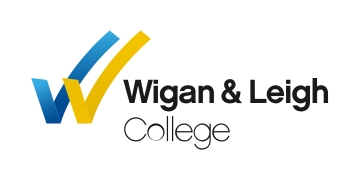The number of teachers qualifying through a 12-week “assessment-only” route is rising, fuelling fears that providers are letting applicants without proper experience qualify for a price.
Two years ago 912 people were awarded QTS through assessment alone, but that figure rose by 13 per cent to 1,034 last year, new data obtained by Schools Week shows.
Four years ago, just 429 people qualified in this manner, but now more than 80 training providers have assessors who can look over a trainee’s evidence portfolio, observe their lessons and sign-off their qualification.
Some of these providers even allow cover supervisors and teaching assistants to qualify as full teachers within three months, even though the government has said it only wants “experienced” unqualified teachers to enter the profession this way.
The route was originally intended for overseas trained teachers or those moving from private schools but Alan Smithers of the University of Buckingham claimed the parameters of the assessment had now been stretched “too far” by some providers.
“They are advertising that they can ‘upgrade’ a teaching assistant but without providing the nub of the training,” he said.
While it is appropriate in some cases, the route is, he believes, “being used as a short-cut”.
Providers are also incentivised to pass teachers, as they usually charge schools around £2,000 per applicant for the service, he added.
Derek Boyle, director of the Bromley Schools’ Collegiate SCITT in south-east London, said more schools were applying to have Special Educational Needs co-ordinators signed off, as QTS is now a requirement of the role.
His own SCITT does not accept them because none have proper whole-class teaching experience, he said. To join the course, applicants must have at least two years’ classroom teaching experience across at least four year groups. Teaching assistants are not allowed to apply for the same reason.
“You need to be doing whole-class teaching, planning, and assessing,” he said. “But some providers do take them.”
They are advertising that they can ‘upgrade’ a teaching assistant but without providing the nub of the training
Schools Week has found at least three providers which accept teaching assistants, and two of these assessed the highest number of trainees last year.
Last year, TES Institute, previously called Hibernia College UK, qualified nearly twice as many applicants through the assessment-only route compared with the year before. At 280, up from 153, this was the highest of any provider.
Stephen Pinches, the institute’s global director, said that allowing “teaching assistants, unqualified teachers and other classroom staff” to “make the jump to qualification” was good for the school system, particularly when delivered by top providers.
The University of Derby is the second-largest provider, passing 80 assessment-only trainees. Its website says the course is ideal for a “cover supervisor, higher-level teaching assistant or supply teacher”.
The University of Warwick, which qualified nine teachers, offers the same: however a spokesperson said teaching assistants must have experience teaching across the curriculum for at least 70 per cent of a full timetable. Cover supervisors must also have been teaching for two years.
Of the providers, 28 per cent are rated ‘outstanding’ by Ofsted, and the rest are ‘good’. Schools Week could not find Ofsted reports for four providers (the Astra SCITT, GORSE SCITT, Lincolnshire Teaching School Alliance and Sutton Park SCITT).
But two providers have not been inspected for eight years, longer than the usual six-year inspection cycle for ITT providers: the George Abbott School SCITT in Surrey, and the Beauchamp ITT Partnership in Leicester, were both last inspected in 2009.
An Ofsted spokesperson said the six-year inspection cycle will end in 2018 and a new ITE inspection framework will be launched in 2019.








Tick box route to QTS – not acceptable. High-quality teachers need high-quality training combining theory and practice like in Finland.
Janet is right. Similarly ‘trained’ doctors would not be let loose on patients. The best ‘teacher training’ has always really been ‘teacher education’, provided by University Schools of Education.
This is just another example of teachers being reduced to ‘operatives’ delivering packages.